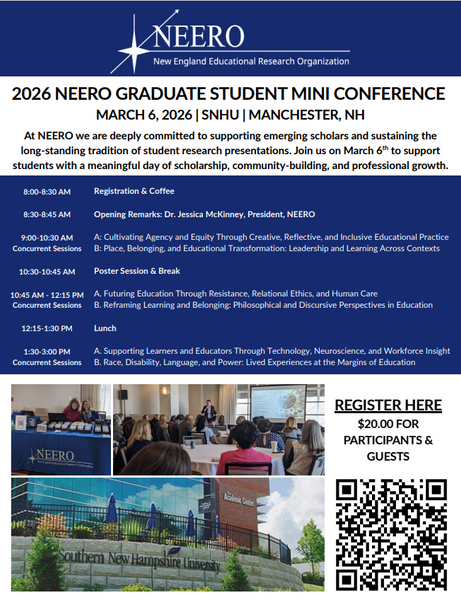Directions from Boston (1 hour)
From I-93 take exit 9N onto US3/RT 28 heading north. At the first intersection, go left onto West Alice Drive. Continue straight on West Alice Drive until you reach the gated entrance to the University where the road turns into Victory Lane. Continue on Victory Lane past the Oulette Stadium and tennis courts, which will both be on your right. At the next stop sign take a left onto East Side Drive. Continue on East Side Drive to the set of lights at the intersection of East Side Drive and N. River Road. At the lights you will continue straight and there will be parking lots on the left (4) and right (3).
Follow the brick path past Belknap Hall and Robert Frost Hall will be the next building on your right.
Directions from the South (Everett Turnpike/Route 3)
Take US Route 3 to I-293 North to Exit 6. Cross the Amoskeag Bridge, then turn left onto Elm Street. Follow Elm for 1 mile, then turn left onto Bennington Road. Go 1 block, then right onto North River Road. Once you reach the set of lights under the SNHU arch, take a left, there will be parking lots on your left (4) and right (3) that are you may park in.
Follow the brick path past Belknap Hall and Robert Frost Hall will be the next building on your right.
Directions From the North (I-93)
Take I-93S to exit 9N. Drive North on US Route 3/Route 28, as above
NEERO
About us
The New England Educational Research Organization (NEERO) creates space for you to share your educational research with peers throughout New England and beyond.
Founded in 1969, the New England Educational Research Organization (NEERO) is a regional research organization with members from colleges and universities, public and private schools, state and local educational agencies, health and social service agencies, and education organizations. NEERO is a member of the Consortium of State and Regional Educational Research Associations (Consortium SRERA) and is an Aligned Organization of the American Educational Research Association (AERA).
What Do Our Members Value About NEERO?
Quotes are taken from 2020 Member Survey




